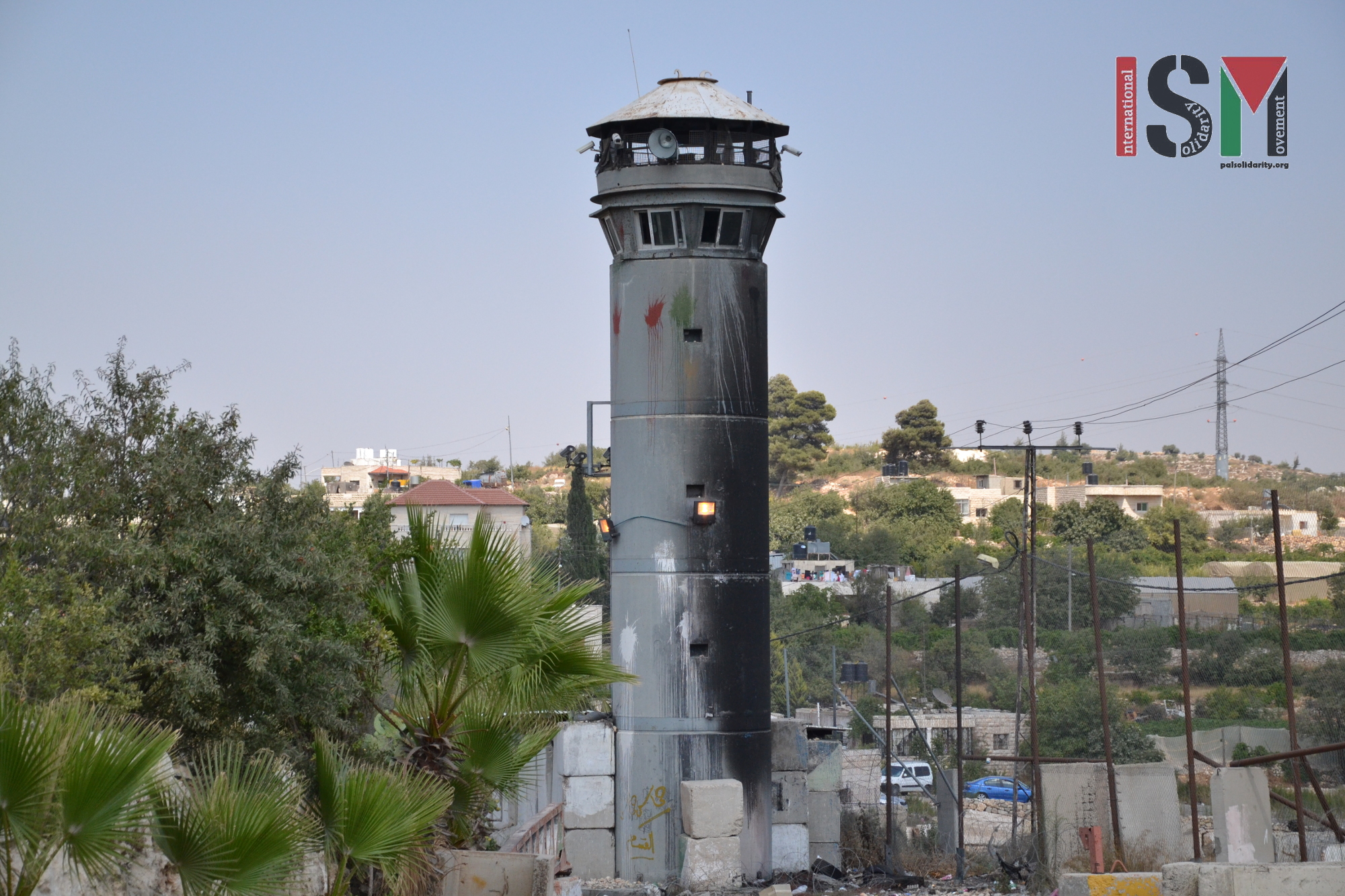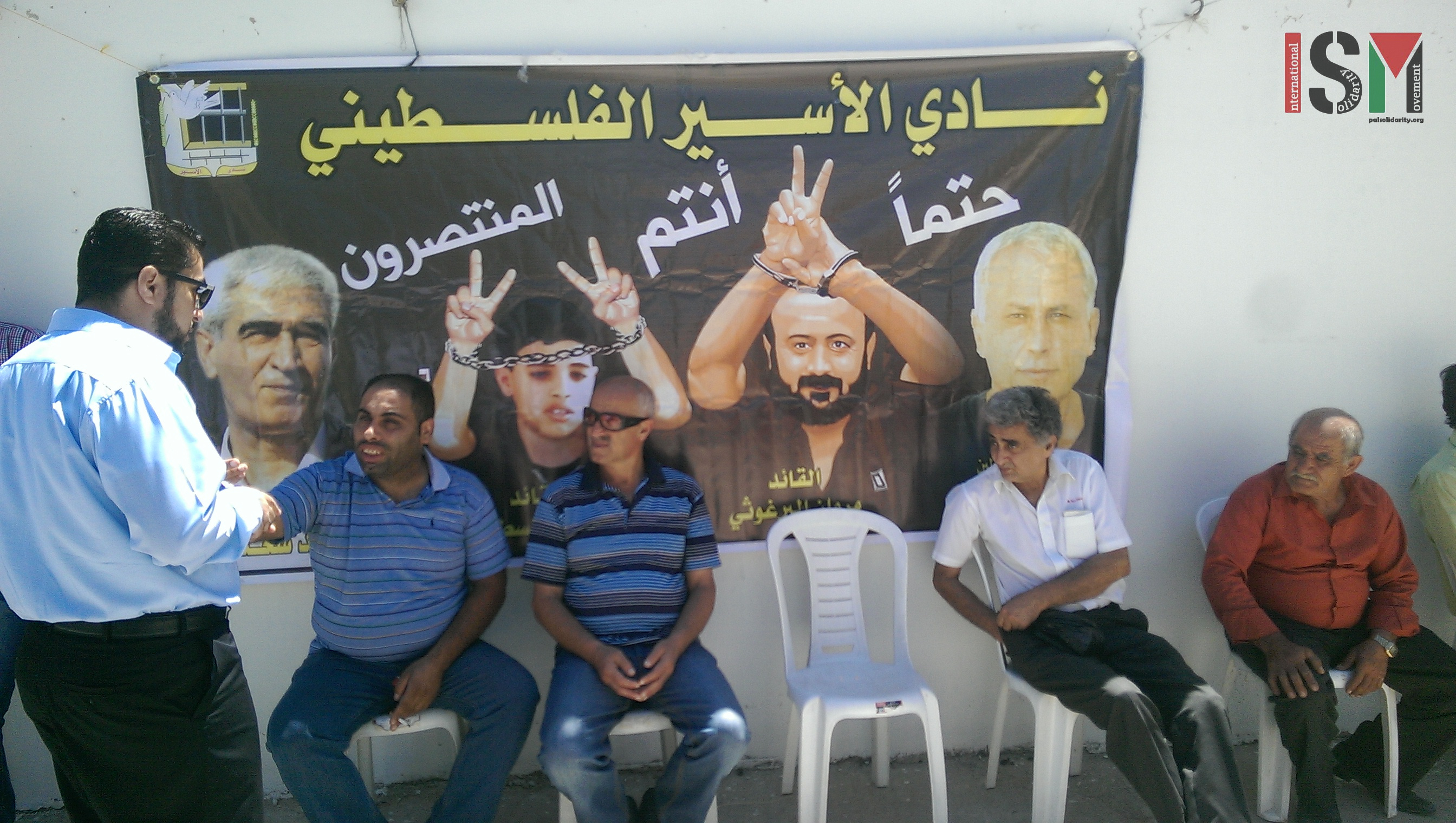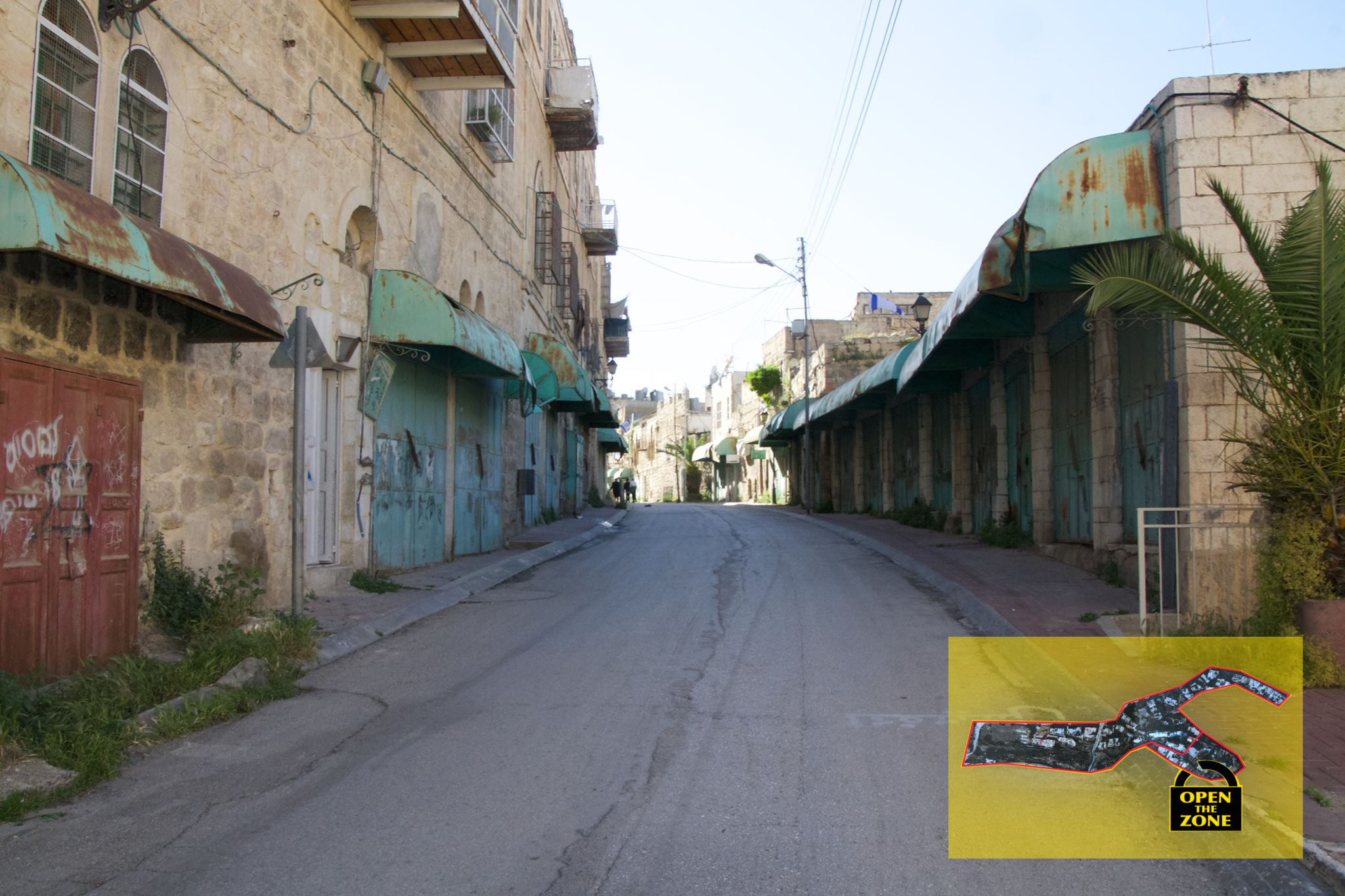Category: Features
-
Beit Ummar’s children targeted by the Israeli army
30th July 2016 | International Solidarity Movement, al-Khalil team | Beit Ummar, occupied Palestine Beit Ummar, a small town outside of Hebron, has a population of just 18000 people, around 200 of which are imprisoned, with 6o of those being below 18 years old. These children are often in administrative detention for over a year…
-
Hunger strikes and family visits in occupation jails
30th July 2016 | International Solidarity Movement, al-Khalil team | Hebron, occupied Palestine A demonstration in solidarity with hunger striking prisoners and against the cut of family visits by the International Commmittee of the Red Cross was organised by the Hebron Defense Committee in occupied al-Khalil (Hebron) on 28th July 2016. The sit-in took place…
-
Collective punishment in al-Khalil through closed military zone upheld
30th July 2016 | International Solidarity Movement, al-Khalil team | Hebron, occupied Palestine The Tel Rumeida neighborhood and Shuhada Street, in occupied al-Khalil (Hebron) are still declared a ‘closed military zone’ by Israeli forces. This form of racist collective punishment deliberately targeting the Palestinian population, has now been implemented for almost 9 months. The area…



